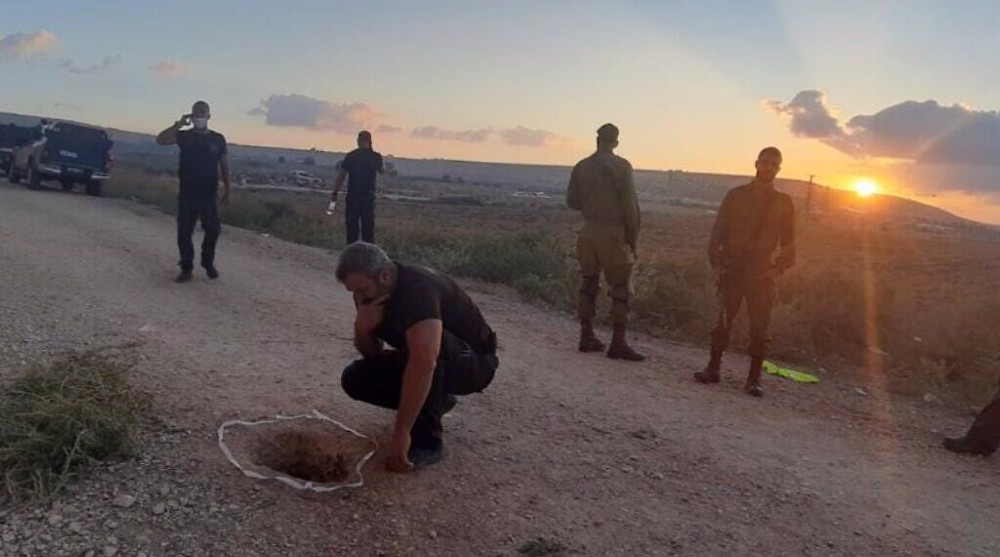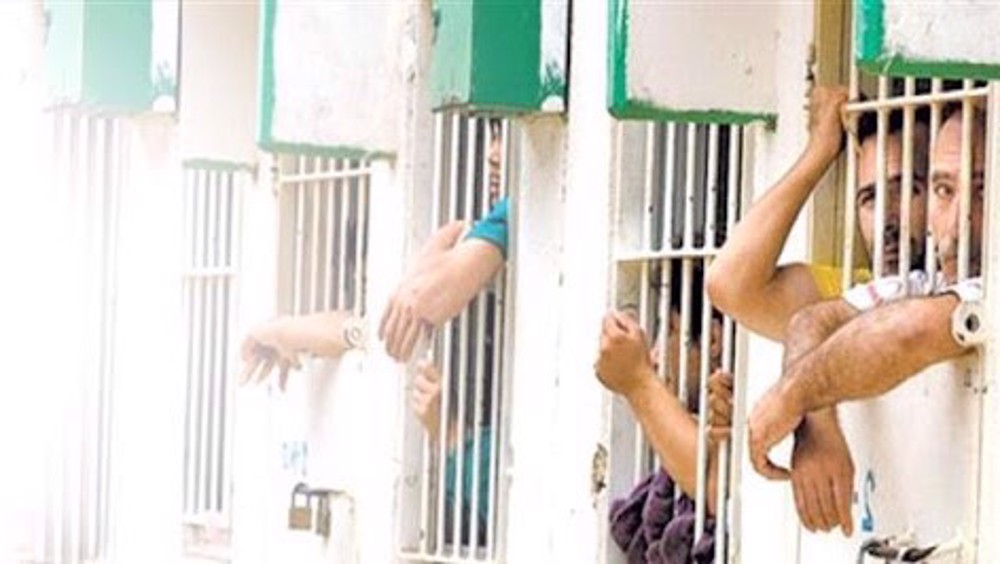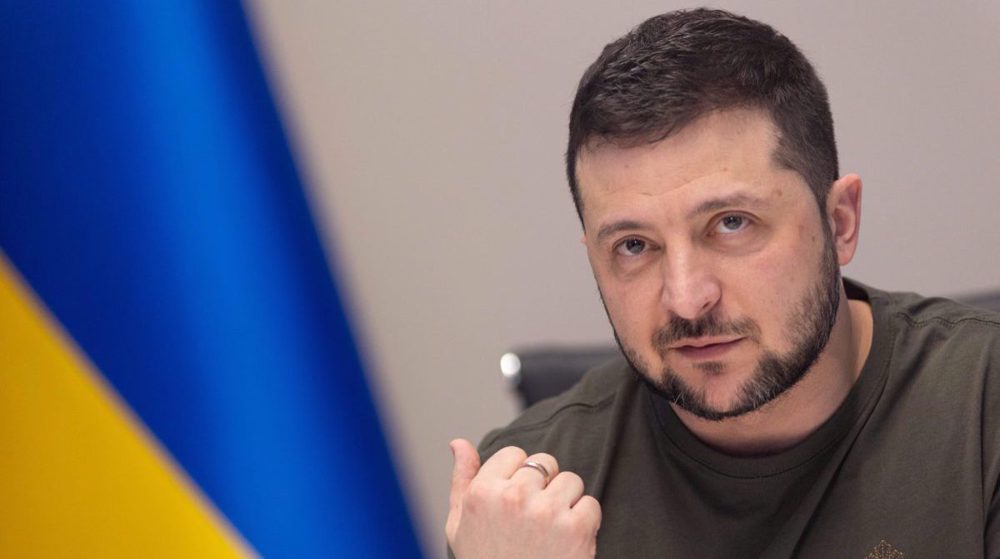A ‘rusty spoon’ hollows out Israel’s self-manufactured image of its ‘security might’
Story by Marziyeh Kaffash & Hossein Jelveh
The escape from a maximum-security prison in Israel by six Palestinian captives earlier this week and an ineffective search for the escapees have deflated the boastful accounts that the heavily-securitized regime in Tel Aviv often produces of its might.
The perfectly-executed getaway, in which the six Palestinians reportedly used a spoon to dig their way out of the maximum-security Gilboa Prison, and the so-far abortive manhunt in the West Bank, which is even normally dotted with Israeli checkpoints, quickly exposed grave security lapses. But it also pitted the reality against the image that Israeli officials like to draw of the regime’s security and spying fitness.
The mismatch has grown starker since Monday, when the breakout took place, as more information has leaked out. Multiple Israeli accounts have emerged of how the captives pulled off the escape, each humiliating the Israeli security apparatus in its own right. One account, that the Palestinians used a “rusty spoon” to dig their way out, provided by The Jerusalem Post on September 6, was apparently deemed so humiliating that it was inexplicably removed from the Israeli outlet’s website only a day later, although it had already been picked up widely by the global media.
Israeli broadcaster Kan reported that an investigation had found that the guard in charge of monitoring surveillance cameras had been asleep when the final stage of the breakout mission was in progress. That account could not be independently verified, in part because Israeli authorities have placed the investigation under a gag order, in apparent fear of even greater disgrace.
Even if the account about the sleeping guard was verified, it would be unclear how the guards failed to notice the preparations that took place, including the digging of the tunnel, which, according to at least one Israeli account, took the Palestinians as long as five months. So would be the Israelis’ mucking up of the subsequent search, which is deploying what AFP has called “the full weight of Israel’s security arsenal.”
The Times of Israel reported that at least one person had contacted police to report “some suspicious people walking around” the prison. “Maybe you should tell them to do a patrol or something,” the man reportedly said. It was unclear whether authorities took action.
According to an Israeli police spokesman, “all branches of the security forces have been mobilized” to search, including “the army, the Shin Bet (internal security service), the police, border guards, and their special units.” But the search, which also involves drones and helicopters, has produced only conflict — with other Palestinians. The Israeli troops have raided neighborhoods in Jenin, where most of the six Palestinians come from, arresting their family members, in what seems to be a fraught search for understanding.
The farcical Israeli conduct undermines the regime’s attempts both to deter Palestinians and “to satisfy its internal front and create a kind of trust from the Israeli public in its security services and institutions,” according to Akram Atallaha Alayasa, with the Palestinian Commission of Detainees’ Affairs.
The debacle also has implications for the regime on a global level, where Tel Aviv has puffed itself up to win international customers for military and security products.
“Israel has marketed itself to many countries of the world, and some of the countries of the region, as being the most capable in terms of security, not only with its human expertise, but also with its advanced technological tools, systems, and programs, and… [has] sold many security technologies to these countries,” Alayasa told Press TV’s website. “Also, many retired military officers have set up security and training companies to sell their expertise in many countries and regions in the world, such as Africa and Latin America.”
The full-force search, besides the new security measures that Israel has adopted in its prison facilities in the wake of the breakout, has put the regime on a collision course with the Palestinian residents of the West Bank, the captives, and the resistance groups based in Gaza, which have already delivered a warning to Tel Aviv against stepping up aggression against compatriots in the occupied territories. The last time Israel refused to heed such a warning was in May, when Gaza-based resistance groups caught Tel Aviv off guard by launching a large-scale military campaign that had the Israeli military stretched so far that it opted for a unilateral ceasefire.
Inside Israeli prisons, unrest broke out as guards sought to impose new restrictions on Palestinian captives there. Palestinians set fire to cells at Ketziot and Ramon prisons, while violence was reported at several other facilities, putting Israeli prison authorities on alert for further clashes.
“Such collective and retaliatory penalties violate the absolute prohibition against the collective punishment of protected people in occupied territory, as enshrined in Article 33(1) of the Fourth Geneva Conventions,” said Sahar Francis, the general director of the Addameer Prisoner Support and Human Rights Association.
Francis said Israeli forces had also threatened the father of one of the escapees, namely Ayham Kamamji, with the assassination of his son during several hours of interrogation.
For the Israelis, the initial shock seemed weighty. As of Thursday, few in Israel were asking questions publicly. Yet, the questions surrounding the incident are grave and will continue to haunt the regime for months, perhaps years, to come, and the implications will likely prove more lasting than the Israelis may realize.
“All of these issues have affected the prestige and the image of the occupying state, not only in front of its Israeli public, but in front of the countries and forces that have bought the illusion that Israel has security capabilities that cannot be penetrated…, and also strengthened the confidence of the Palestinians in their [own] capabilities,” Alayasa said.
VIDEO | Press TV's news headlines
Zelensky allies flee to Israel as $100-million graft scandal erupts: Probe
VIDEO | Protests across US against war with Venezuela
VIDEO | UK academics discuss rising tide of Islamophobic violence
VIDEO | Expanding ties: Iran's FM message to Tunisia
VIDEO | New Delhi-Moscow ties deepens despite Western pressure
VIDEO | Israel prevents Glaucoma patients from leaving Gaza
‘No to Zionist tourism’: Italian ports see rising backlash against Israeli tourism amid Gaza war












 This makes it easy to access the Press TV website
This makes it easy to access the Press TV website